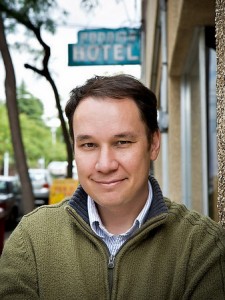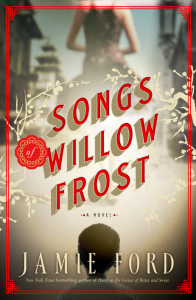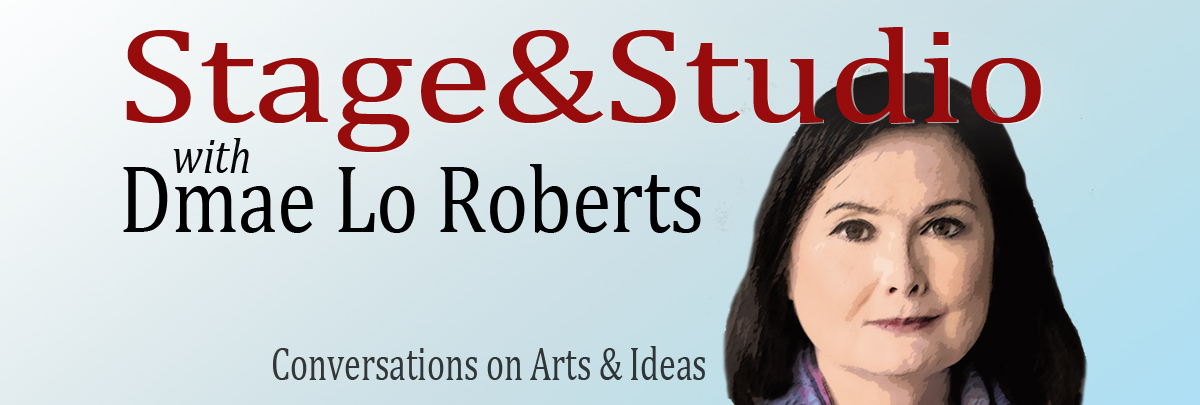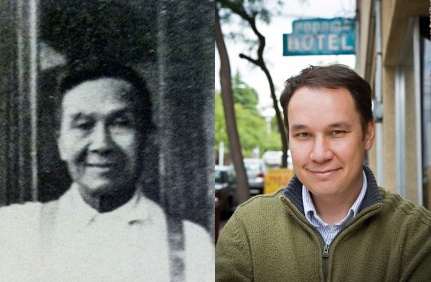Jamie Ford: Songs of Willow Frost
Dmae Roberts talks to New York Times bestseller list author Jamie Ford about his newest book Songs of Willow Frost. Set against the backdrop of Depression-era Seattle, Songs of Willow Frost is a powerful tale of two people—a  12-year-old Chinese-American boy with dreams for his future and a woman he believes to be his mother who is escaping her haunted past. Both seek love, hope, redemption.
(Encores 11am Sat,11/9, on KZME 107.1FM)
 Jamie Ford was the New York Times bestselling author of Hotel on the Corner of Bitter and Sweet— an IndieBound NEXT List Selection, a Borders Original Voices Selection, a Barnes & Noble Book Club Selection, Pennie’s Pick at Costco, a Target Bookmarked Club Pick, and a National Bestseller. It was also named the #1 Book Club Pick for Fall 2009/Winter 2010 by the American Booksellers Association.
Jamie Ford was the New York Times bestselling author of Hotel on the Corner of Bitter and Sweet— an IndieBound NEXT List Selection, a Borders Original Voices Selection, a Barnes & Noble Book Club Selection, Pennie’s Pick at Costco, a Target Bookmarked Club Pick, and a National Bestseller. It was also named the #1 Book Club Pick for Fall 2009/Winter 2010 by the American Booksellers Association.
- the KBOO website and on 90.7FM live at 11am on Tuesdays
- Saturdays 11am on KZME, 107.1FM
- Don’t want to miss a single episode? Subscribe to Stage & Studio On iTunes!
- And always on the official Stage & Studio website!
Podcast: Play in new window | Download
____________________________________________________
Article/Review of Jamie Ford’s Songs of Willow Frost:
(this piece was originally published in Dmae’s column in The Asian Reporter)
 Every child at one time or another has fantasized they’re actually the son or daughter of a glamorous movie star. I often wished that myself as a teenager when arguing with my parents. For one 12-year-old boy named William Eng in Depression-era Seattle, that dream becomes a quest to find his mother and the secret of how he was left at the Sacred Heart Orphanage.
Every child at one time or another has fantasized they’re actually the son or daughter of a glamorous movie star. I often wished that myself as a teenager when arguing with my parents. For one 12-year-old boy named William Eng in Depression-era Seattle, that dream becomes a quest to find his mother and the secret of how he was left at the Sacred Heart Orphanage.
Jamie Ford, author of the acclaimed Hotel on the Corner of Bitter and Sweet, has penned another impressive historical novel about an Asian-American family that has also made it onto The New York Times bestseller list. In Hotel on the Corner of Bitter and Sweet, Ford wrote a love story about a Chinese boy and a Japanese-American girl in Seattle who are separated when the girl and her family are incarcerated in an internment camp during World War II.
Set amid the backdrop of poverty and desolation in the 1930s, Ford’s newest novel, Songs of Willow Frost, is a powerful tale of another kind of heartbreak — that of a boy searching for the movie star he believes to be the mother (who abandoned him five years earlier) in an attempt to find love, hope, and forgiveness.
As someone who grew up near Seattle, Ford already had personal connections to the city and to several of the settings in the book such as the Sacred Heart Orphanage where young William is housed. It’s now called the Villa Academy, a Catholic grade school. In Songs of Willow Frost, the orphanage is a poignant location where many kids like William are placed because their families are too poor to take care of them.
“For me, if you were an orphan and lost your parents, there’s an aspect of tragedy and sadness,” says Ford, “but if your parents put you there, and you never knew if and when they were coming back, that’s even more distressing.”
The first part of the book follows young William’s quest to meet Willow Frost, a film star performing in Seattle. Ford says the character of Willow Frost was inspired by his mom, grandmother, and screen legend Anna May Wong, who experienced her own sadness in Hollywood.
When William watches a film with a Chinese woman wistfully singing, “Dream a Little Dream of Me,” he instantly recognizes the “star” as his mother. William then runs away from the orphanage through the worst parts of Seattle to get to the theatre where Frost is performing.
Ford describes with painstaking historic detail a sepia-toned vision of Seattle’s Skid Row in the Depression:
“Through a haze of dust and coal smoke he could see the street spilling like a river onto the mudflats south of the city, where hundreds of ramshackle homes and clapboard shacks were pieced together with scrap lumber and tar paper. A hand-painted banner hung across the road that read: WELCOME TO HOOVERVILLE. WHERE LIFE IS STRIFE. As the wind blew northward he could smell sawdust, urine, and despair.”
In the second part of the book, Ford shifts perspective to Willow Song, the young girl who dreamt of becoming a singer. Through her point of view, we learn the story of how she, a young mother, was forced by circumstance and inequity to give up her child.
Another historical place referenced in the book is the Wah Mee Club, where Willow had always worked as a dance hall girl. Ford felt a familial connection to the Wah Mee because that’s where his grandfather, a blackjack dealer, and his grandmother, a coat-check girl, had met. People in the Pacific Northwest might remember the 1983 tragedy when three men shot 14 people in the club with only one victim surviving.
In the book, however, Ford wanted to write about the 1930s, when his grandparents and immigrants like them went to the Wah Mee as a social club: “Before that, it was this place in the community going back to prohibition. When people wanted booze and gambling and music — all kinds of illicit good times — you went to Chinatown and places like the Wah Mee.”
And though it’s a less than idyllic reunion for William and Willow, Ford skillfully writes about the strong bond of a parent and child, no matter how terrible the circumstance, and about the ultimate gift of redemption.
For his next book, Ford is going further back in history, to 1909, to the Alaska-Yukon-Pacific Exposition, the first actual World’s Fair, held in Seattle, where a young boy was raffled off to the spectators. Ford says that boy is prominent in the tale that’s sure to be another “complicated family story” spanning several decades. “There are these windows of history,” Ford says, “that are worth stepping through and putting my feet in the dirt and walking around.”
To learn more about Jamie Ford and Songs of Willow Frost, visit <www.jamieford.com>.


